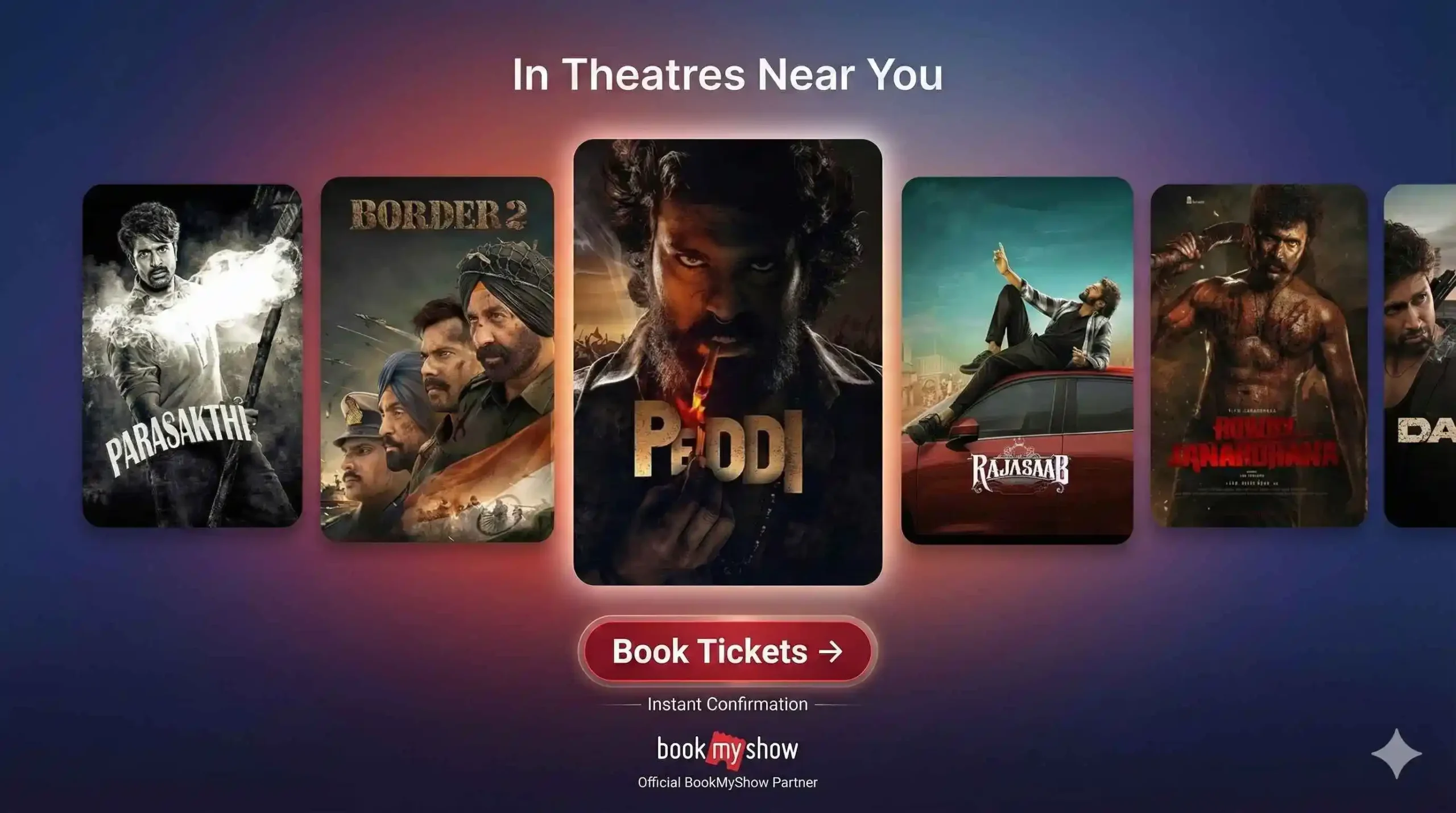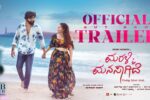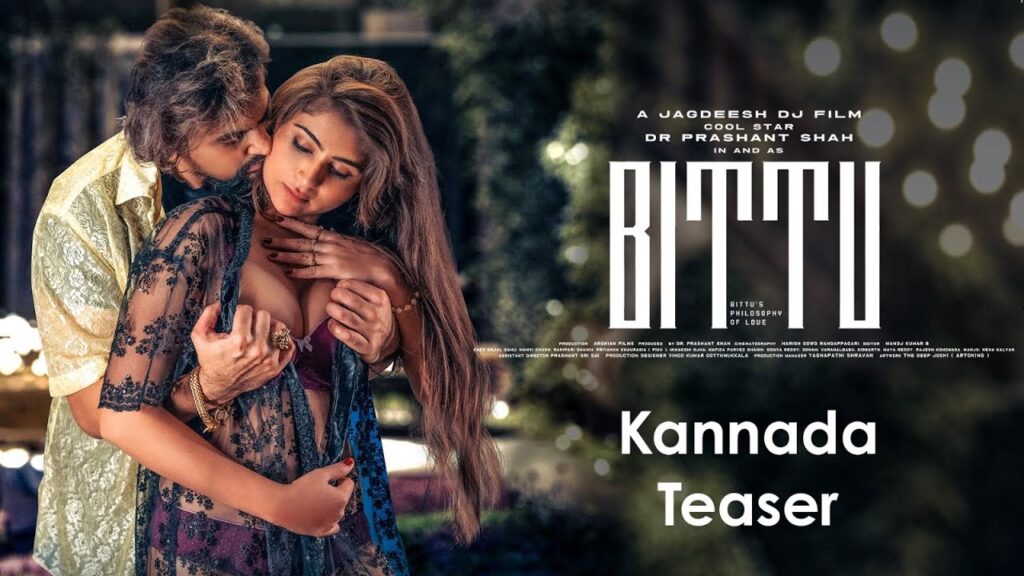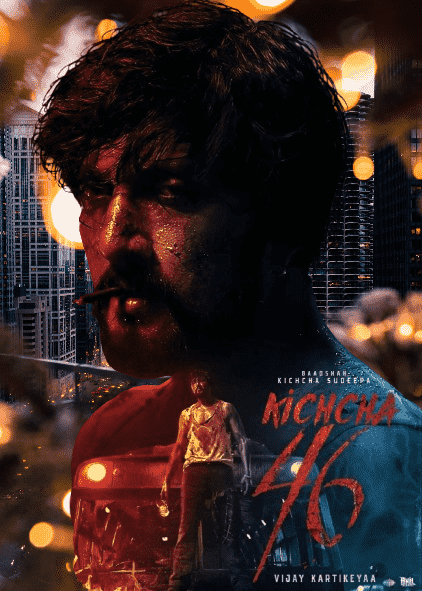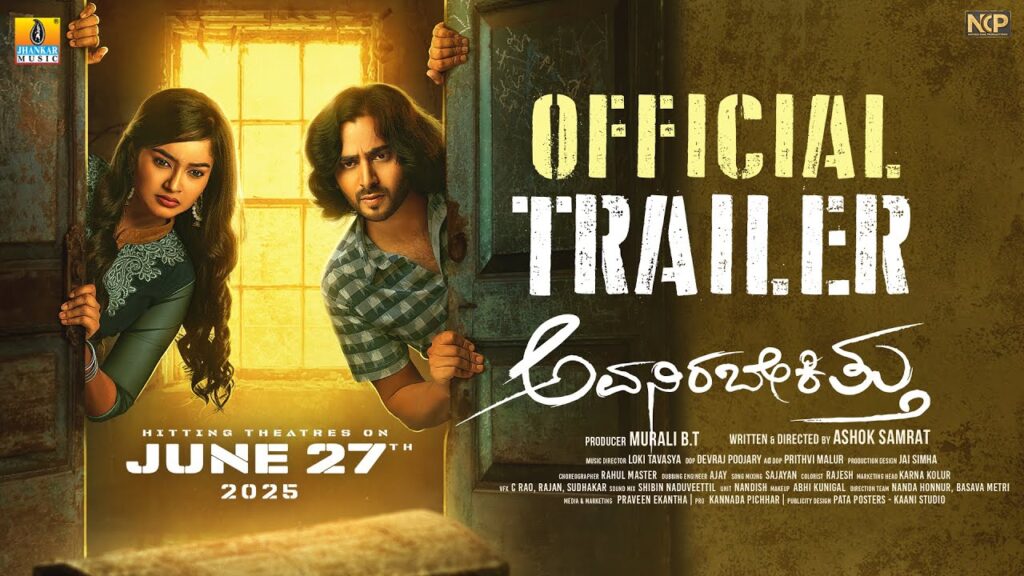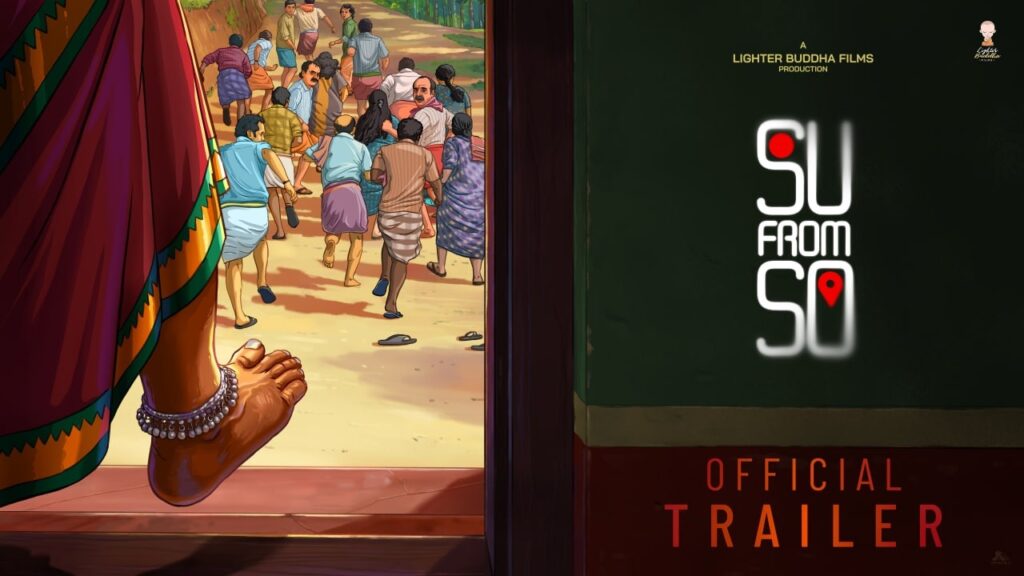Jungle Mangal Movie 2025 Bapamtv Review Details
Jungle Mangal (2025) Movie Review: A Visual Spectacle in the Heart of the Ghats
Introduction
Jungle Mangal (2025) transports us deep into the forests of the Western Ghats, using a rich visual tapestry to narrate a haunting tale.
Check showtimes, seat availability, and exclusive offers for the latest movies near you.
Check on BookMyShow →Directed by Rakshit Kumar, this Kannada-language adventure thriller released on July 4, 2025, is a masterclass in visual storytelling and immersive cinematography.
Plot Summary
Set during the early COVID-19 lockdown, Jungle Mangal tells the story of Praveen and Divya, lovers entangled in a forbidden romance.
Their journey, filled with danger and discovery, evolves in a non-linear style, filled with flashbacks and symbolic moments that draw viewers into a surreal cinematic experience.
Cast & Performances
Yash Shetty as Praveen and Harshitha Ramachandra as Divya breathe authenticity into their roles with genuine emotion.
Ugramm Manju delivers a fierce and unpredictable performance, adding an edge of threat that sharpens the tension.
Visual Storytelling at its Finest
Jungle Mangal’s cinematography, led by Vishnu Prasad, is nothing short of breathtaking.
Each frame captures the essence of the Western Ghats, from mist-covered treetops to shimmering riverbeds, evoking an almost spiritual ambiance.
Cinematography Techniques
Long tracking shots, overhead drone visuals, and soft natural lighting dominate the film’s visual language.
Vishnu Prasad uses silhouette framing and textured compositions to create a mood that complements the emotional undercurrents.
Visual Effects Breakdown
The film uses minimal VFX, but when applied, they seamlessly blend with the natural environment.
Fog overlays, light-enhancing filters, and atmospheric transitions heighten suspense without feeling artificial.
Comparison with Industry Standards
Unlike many recent thrillers, Jungle Mangal avoids excessive CGI and flashy transitions.
Its grounded visual realism sets a new benchmark in regional cinema, favoring authenticity over spectacle.
Direction Meets Visual Design
Director Rakshit Kumar’s subtle approach pairs beautifully with the film’s visuals.
He lets the camera linger on meaningful details—like a fluttering saree in the wind or a broken branch on a jungle path—using visual metaphors to enrich the narrative.
Box Office and Technical Recognition
The film has done well commercially, especially in Karnataka’s metro regions, and is gaining attention across Southern India.
Its visual finesse places it as a strong contender in upcoming technical award categories like Best Cinematography and Best Art Direction.
Music and Ambient Sound
The ambient score by Prasad K Shetty and Poornachandra Tejaswi complements the visuals perfectly.
Natural sounds—bird calls, rustling leaves, distant drums—are used to deepen immersion rather than relying on heavy background scores.
Production and Editing Quality
Manu Shedgar’s editing maintains a crisp pace, using cross-cutting and fade transitions to maintain narrative flow.
Art direction by Varadaraj Kamath ensures every hut, trail, and costume looks rooted in the region’s culture.
Symbolism and Imagery
The forest is portrayed almost as a living entity—mysterious, watchful, and sacred.
Mirroring Divya’s emotional turmoil and Praveen’s defiance, it reflects their internal battles and evolving relationship.
Table: Cinematic Highlights
| Element | Details |
|---|---|
| Cinematography | Natural lighting, silhouette framing, wide-angle jungle shots |
| Visual Effects | Minimal use; subtle fog and light effects |
| Editing | Smooth, with effective use of flashbacks |
| Art Direction | Authentic village and forest aesthetics |
| Production Quality | High, especially for a regional film |
| Best Visual Sequence | Praveen and Divya escaping under moonlight |
Star Rating Table
| Source | Rating |
|---|---|
| Times of India | 3.0/5 |
| ETimes | 3.0/5 |
| Audience (BookMyShow) | 8.7/10 |
| Average Critical Rating | 3/5 |
| Audience Response | Generally positive |
Strengths
- Stunning natural cinematography
- Realistic visual effects
- Immersive direction and sound design
- Authentic rural aesthetics
Weaknesses
- Pacing slows down in some flashbacks
- Lack of visual variety in non-forest scenes
Conclusion
Jungle Mangal is a visual triumph that redefines the language of adventure thrillers in regional cinema.
From camera choices to ambient sound and editing rhythm, the film builds an atmosphere that lingers long after it ends.
Quick Visual Highlights Table
| Aspect | Details |
|---|---|
| Best Scene | Riverbank chase under fog |
| Visual Tone | Mystical, earthy, immersive |
| Cinematographer | Vishnu Prasad |
| Director | Rakshit Kumar |
| Camera Style | Wide shots, close emotion captures |
| Release Date | July 4, 2025 |
FAQs
Question 1
What makes Jungle Mangal’s cinematography unique?
Answer 1
Its use of natural light, wide frames, and authentic forest visuals offer an immersive experience that’s rarely seen in regional cinema.
Question 2
Are there heavy visual effects in the movie?
Answer 2
No, the film relies on minimal VFX and focuses more on natural environments and visual realism.
Question 3
Does Jungle Mangal meet industry standards for technical quality?
Answer 3
Yes, especially in cinematography and production design, it meets and at times exceeds current industry benchmarks.
Question 4
Can Jungle Mangal win any technical awards?
Answer 4
It stands a strong chance in categories like Best Cinematography and Best Art Direction.
Question 5
Is Jungle Mangal worth watching for visual appeal alone?
Answer 5
Absolutely, even if you’re not into thrillers, the visuals make it a captivating watch.
Disclaimer
The star rating mentioned in this review is subject to change based on broader audience feedback and further critical consensus.


